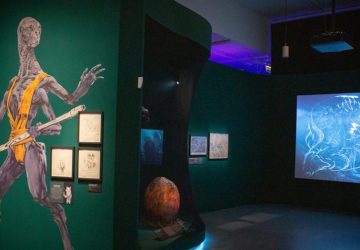Listen to the article
On the cusp of his 80th birthday, Michael Morpurgo, a towering figure in British children’s literature, reflects on the cinematic adaptations of his work. Known globally for his millions of books sold, Morpurgo’s narratives have often ventured onto the big screen, not always with the artistic success he hoped for. In a recent interview, he discusses this with a blend of critical insight and hopeful anticipation.
Michael Morpurgo is forthright in his critique of Steven Spielberg’s adaptation of War Horse, calling it “poorly written” and lamenting its clichéd portrayal of war and its characters. He believes the film failed to capture the essence of his story or do justice to its characters, both human and equine. The latter, he argues, were portrayed as too aristocratic, a far cry from the sturdy farm horses he envisioned.
However, Morpurgo sees a brighter horizon with the release of Kensuke’s Kingdom, an animated work directed by Neil Boyle and Kirk Hendry. He praises this adaptation, in which he was involved, lauding it as an emotionally rich and suspenseful narrative that surpasses even the book. The story, which follows a Japanese man living in seclusion on a deserted island after losing his family in World War II, is commended for its aesthetic care, emotional depth and well-paced suspense.

Themes of war and peace weave through Morpurgo’s body of work, reflecting his personal commitment and sensitivity to global conflicts. A former teacher and literature enthusiast, he uses his stories to address the horrors of past and present wars, focusing on their human impact. His books, included in national education curricula, demonstrate his dedication to educating young generations about these critical issues.
Morpurgo’s advocacy for peace extends beyond fiction. His visits to Israel and the occupied Palestinian territories inspired The Kites are Flying!, a tale of hope and connection between children on opposing sides of the Israeli-Palestinian conflict. Born in 1943, Morpurgo describes himself as “a child of war,” emphasizing the importance of carefully introducing difficult subjects to children, allowing them to understand the world without being overwhelmed.

Beyond his literary work, Morpurgo leads a significant British charity promoting children’s literature. He voices concern over the decline in reading, viewing it as vital for developing critical thinking and independent thought. Reading, to him, is a means of empowerment and discovering truth, crucial in a society increasingly divided between thinkers and non-thinkers.
Michael Morpurgo’s work and activism serve as a bridge between generations, urging reflection on conflicts, humanity and the power of art to educate and uplift. With Kensuke’s Kingdom, he feels he has finally found a film adaptation that meets his standards, marking a turning point in his relationship with cinema and reinforcing his message of peace and mutual understanding.
With AFP





